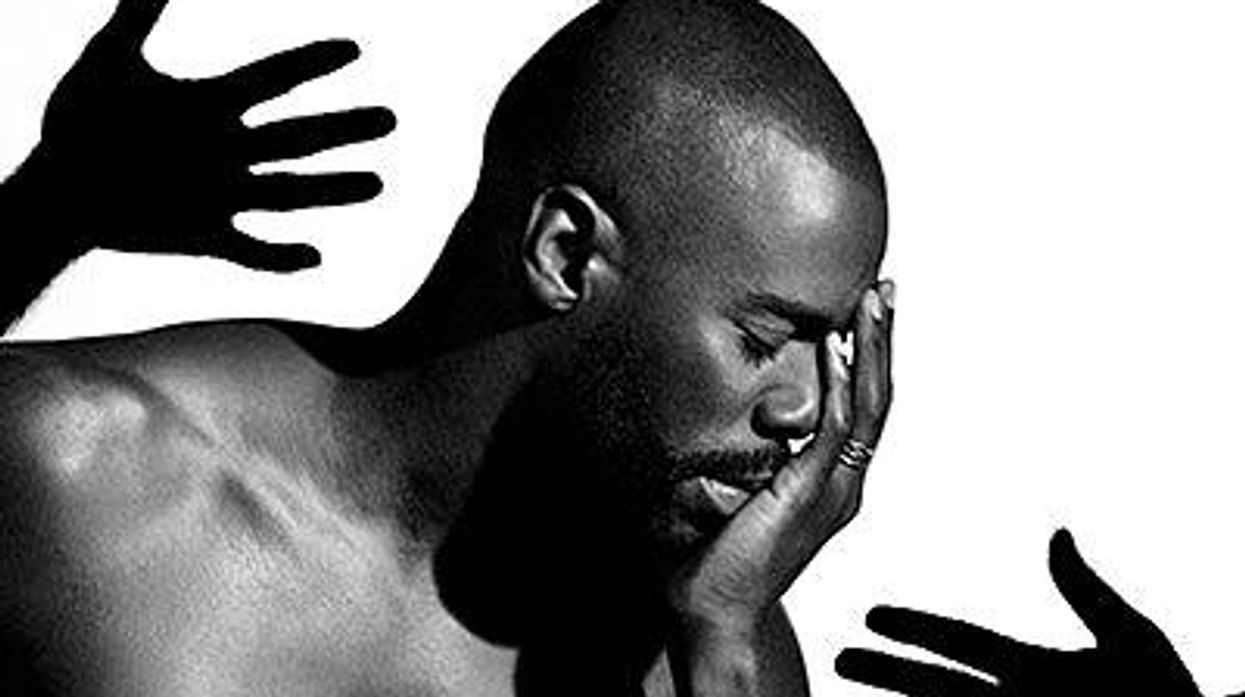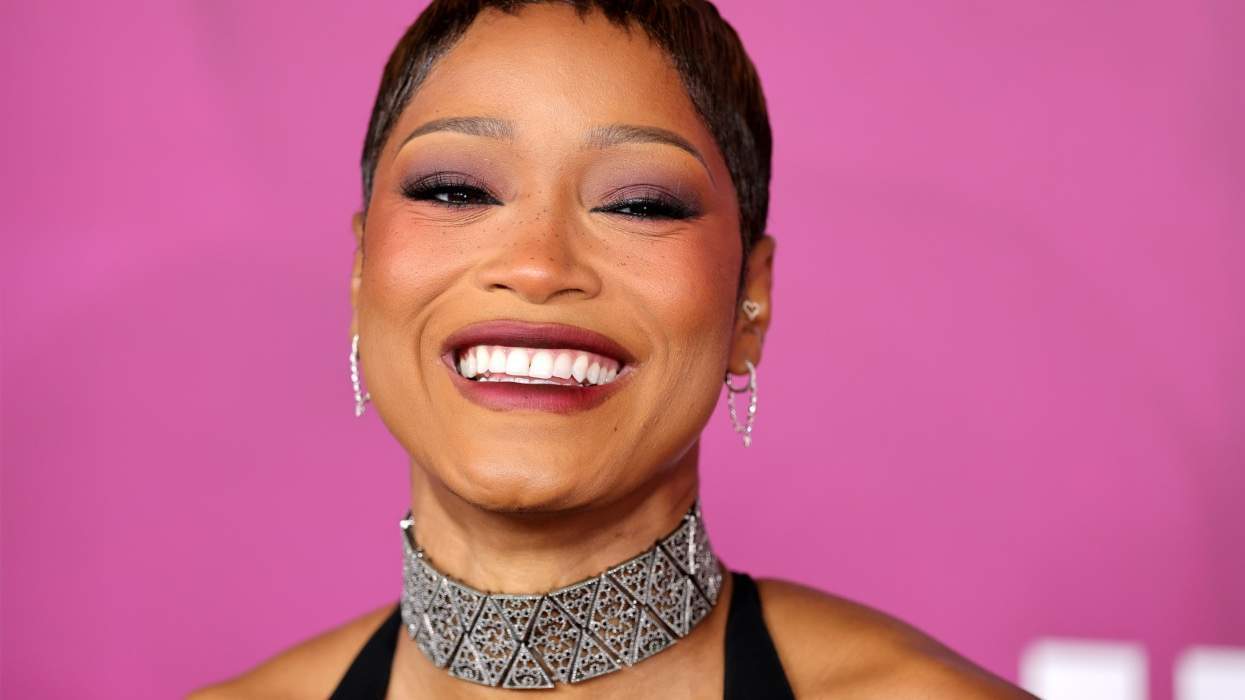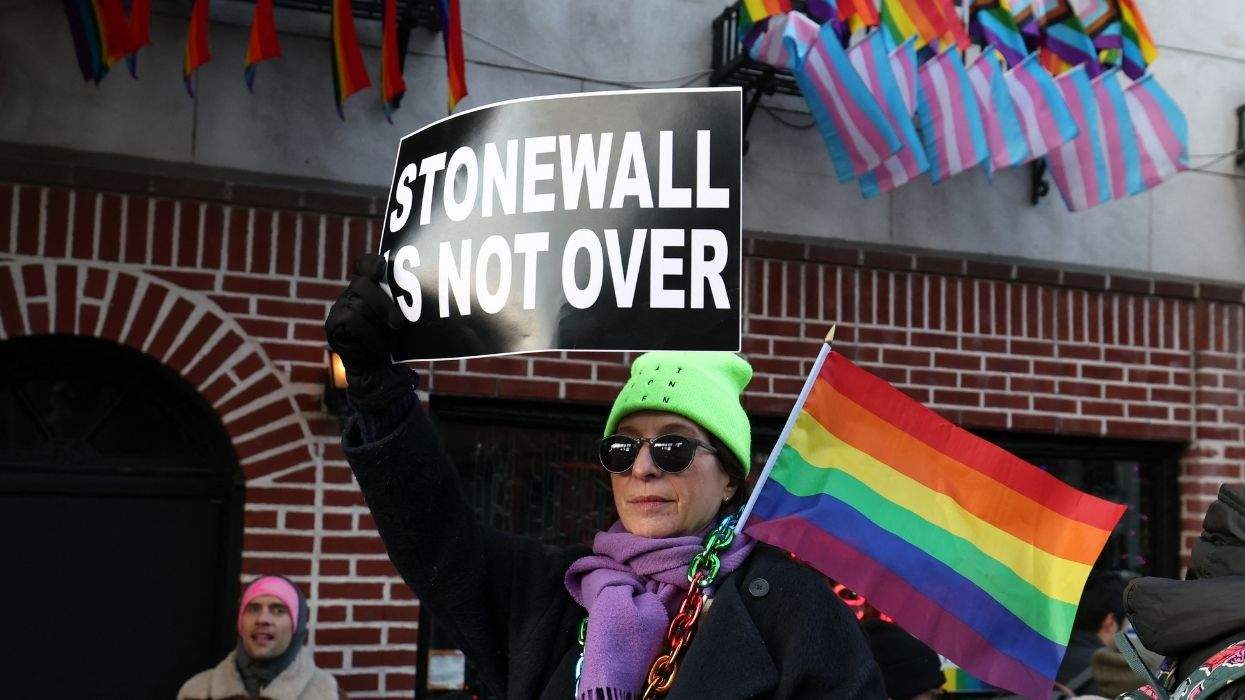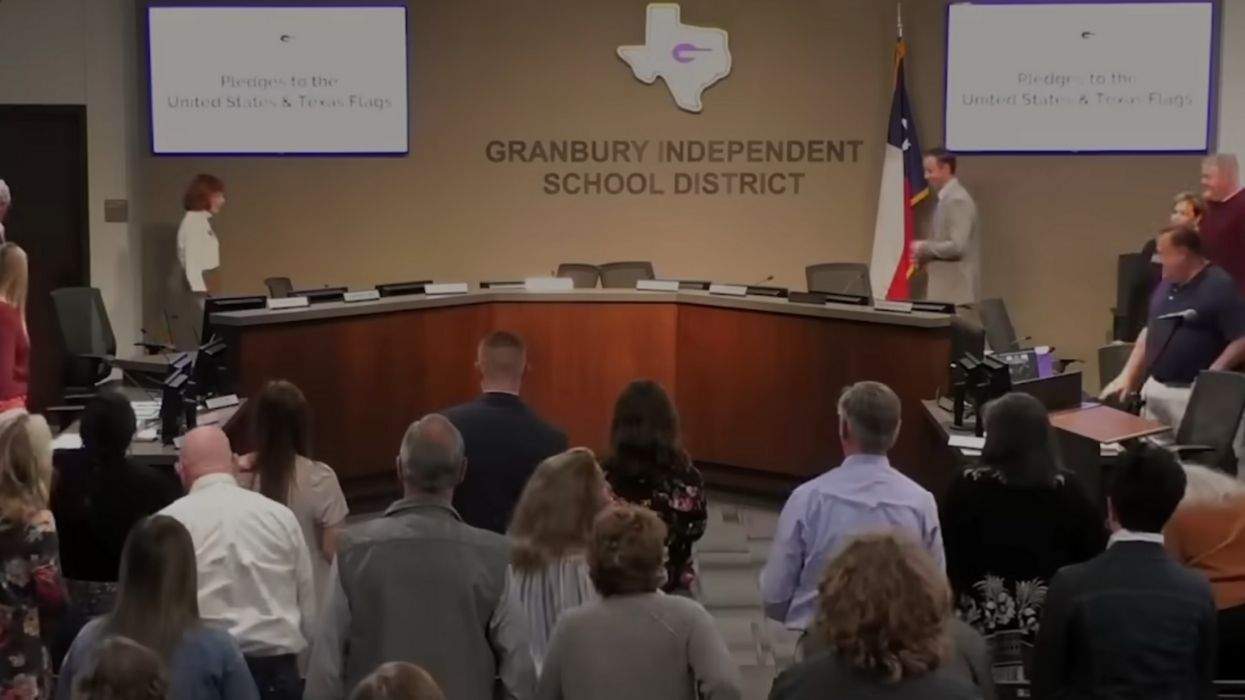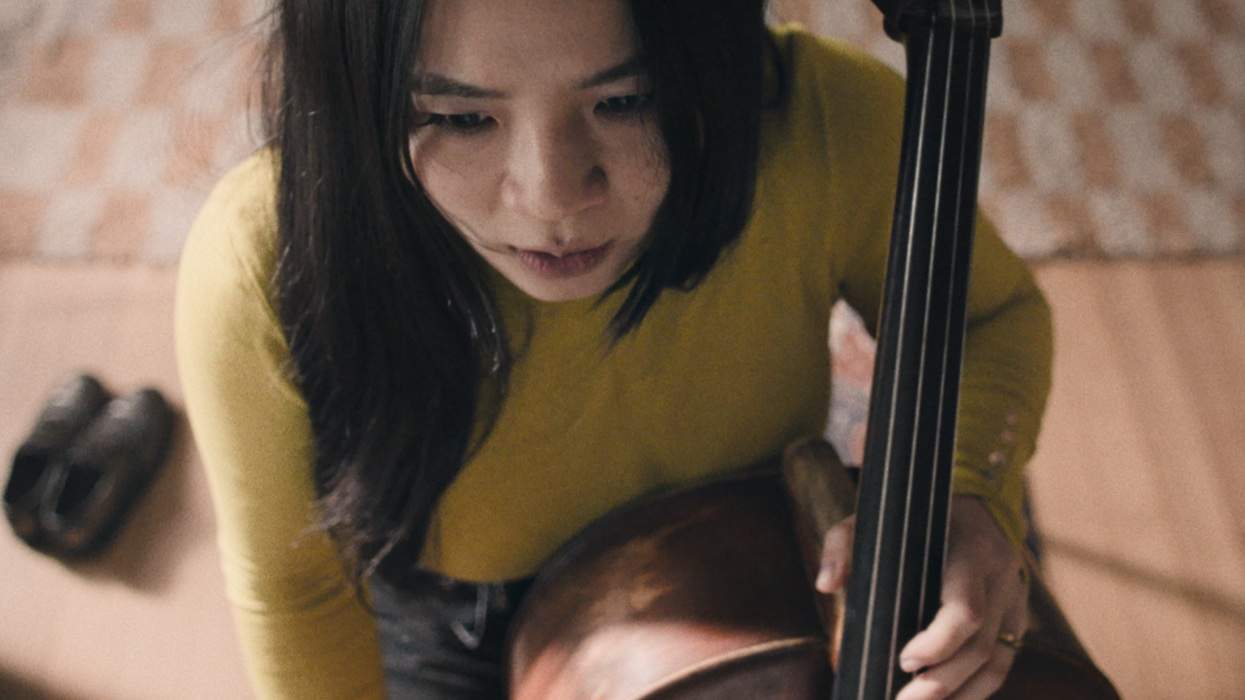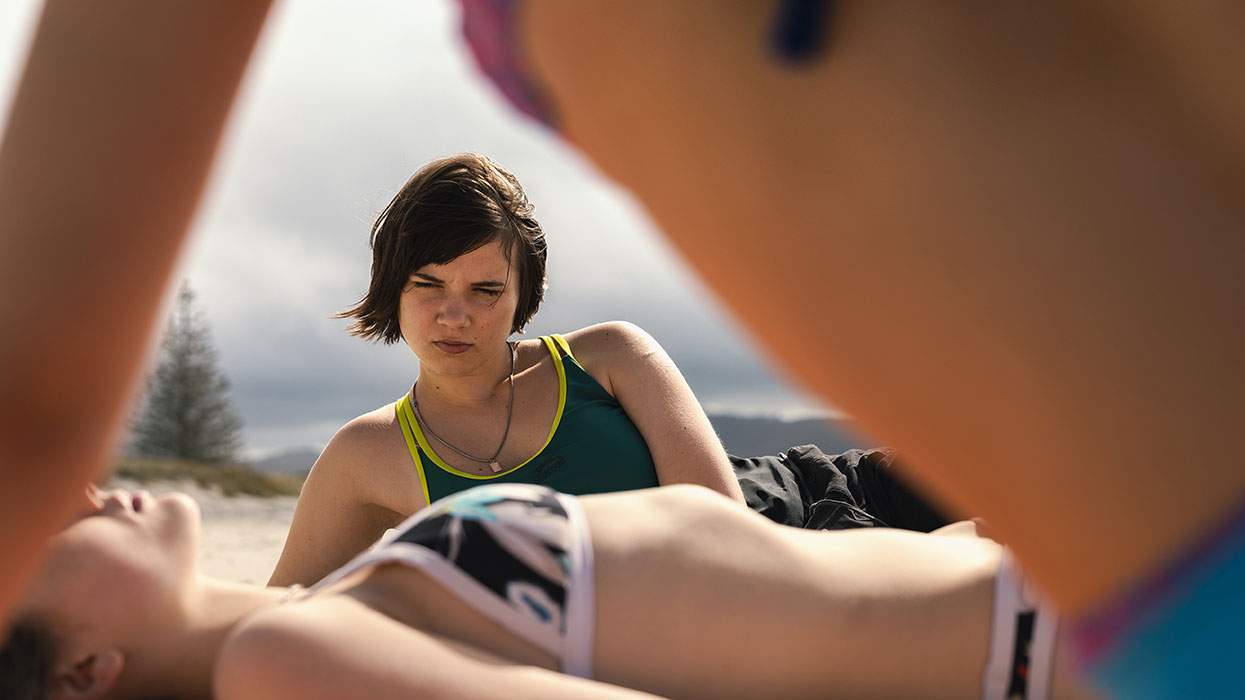Colman Domingo twice rejected director Ava DuVernay's offer to join the high-profile production of Selma, a film that recalls the 1965 Selma-to-Montgomery protest marches, a critical juncture in the African-American civil rights movement.
It's not often that Oprah Winfrey produces and takes a part in a film, but she's doing so in Selma. Nevertheless, Domingo, a critically acclaimed actor and playwright, told DuVernay that he had already committed to bringing his one-man play, A Boy and His Soul, to his hometown of Philadelphia. DuVernay, who took up the long-gestating Martin Luther King Jr. project, would not take no for answer.
"Oh, my God. Is he actually saying no?" DuVernay recalls thinking with a laugh. "I had to call David Oyelowo [the actor cast as King] and tell him, 'Please call your friend and tell him he wants to do Selma.' "
Domingo relented; he portrays the Rev. Ralph Abernathy, King's confidant and comrade in the film, which chronicles the 1965 voting rights campaign led by King and other leaders. On March 7, 1965, some 600 marchers attempted a 54-mile march to protest voting inequalities and to channel anger over the killing of voting rights activist Jimmie Lee Jackson. Police attacked the marchers with billy clubs and tear gas on Bloody Sunday, as the first day of the march came to be known.
DuVernay's masterful depictions have a special resonance as images of the crisis in Ferguson, Mo., continue. "It's the same thing. A young brother gets killed, there are injustices that are systemic in the community, legislation is all out of whack, and people start to react and try to figure out a way to take action, mobilize, and try to change the circumstances," DuVernay says. "Same thing in Ferguson. There's a heavy police presence. One happened in 1965, and one happened in 2014."
Selma will appear on the big screen during a moment when many black Americans are questioning the extent to which racial justice has been achieved in the United States, especially following the Supreme Court's decision to invalidate a key aspect of the Voting Rights Act of 1965. Americans have simultaneously witnessed progress among LGBT advocates, who have fought for the right to marry and other equal protections under the law. DuVernay notes that the LGBT fight for equality is an "age-long struggle that stands side by side with the African-American struggle for rights."
The connections between the black struggle and the LGBT fight for equal rights is clear to Domingo, who is gay.
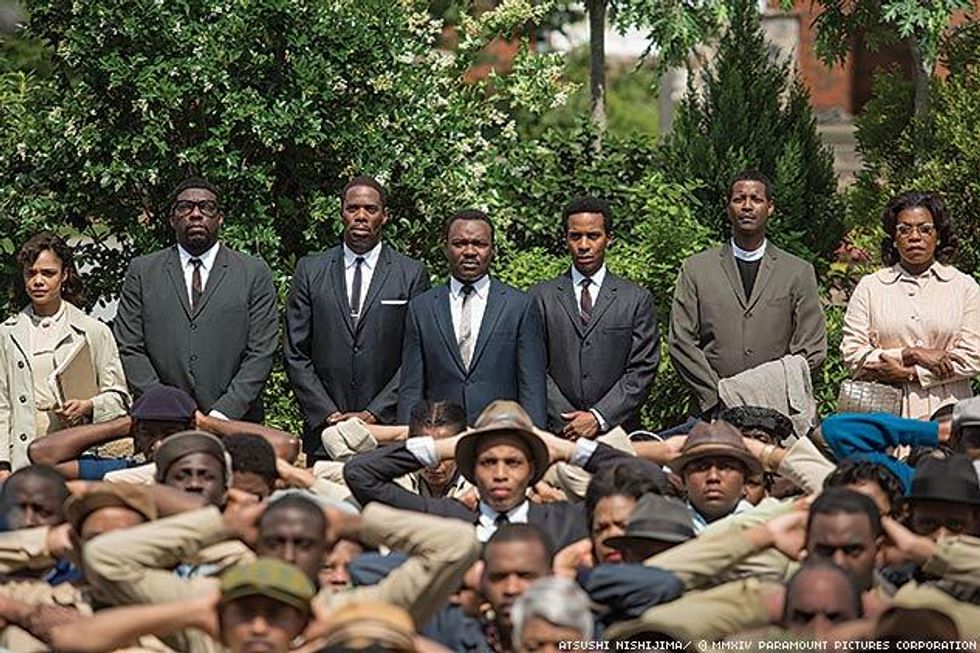
"What my community asks of me, what the world asks of me, is to be useful and to use my gifts, and to hopefully shine a light on something which hasn't been said, or to write something I feel needs to be added to the experiences not only of African-Americans, but of humans and human nature," Domingo notes.
Domingo is no stranger to roles primed to instigate change. He has appeared in Lincoln by Steven Spielberg, several films by Spike Lee, Lee Daniels' The Butler, and The Scottsboro Boys on Broadway.
Working on Selma gave Domingo a chance to view some civil rights giants, including Diane Nash and Ralph Abernathy, as human-sized. "By meeting people like Andrew Young and John Lewis, I was able to see them as ordinary human beings doing extraordinary things," he says. "I always looked at these leaders, but I didn't look at the people who were following these leaders, because you couldn't have a movement if it weren't for these so-called 'extras,' or people who are being sent out there to constantly be arrested, and these teenagers, people who felt motivated to just do work they thought was right."
Though Domingo and DuVernay have high praise for actor David Oyelowo's depiction of King, both insist portrayals of often forgotten leaders -- including women like Amelia Boynton and Richie Jean Jackson, and Bayard Rustin, who was gay -- are as important. Actor Ruben Santiago-Hudson plays Rustin in this film. "Bayard Rustin is always left out of the narrative because many would be uncomfortable with [him], but that's part of our history," Domingo says.
DuVernay agrees: "It was my responsibility to make sure that I, as a black woman, was in this script somewhere. Women's role were written and integrated into the narrative. It was really important to me that Bayard Rustin be included in the film. He was a firebrand. He was an effing badass."
Selma depicts a movement in a long conflict marked with defeats and triumph. And for those, like Domingo, who exist within the space where the black and LGBT identities intersect, the film is a reminder that the struggle for visibility and equality continues.
Selma opens in limited release on January 9.
DARNELL L. MOORE is a Brooklyn-based writer and activist. He writes about the politics of race, gender, and sexuality.
